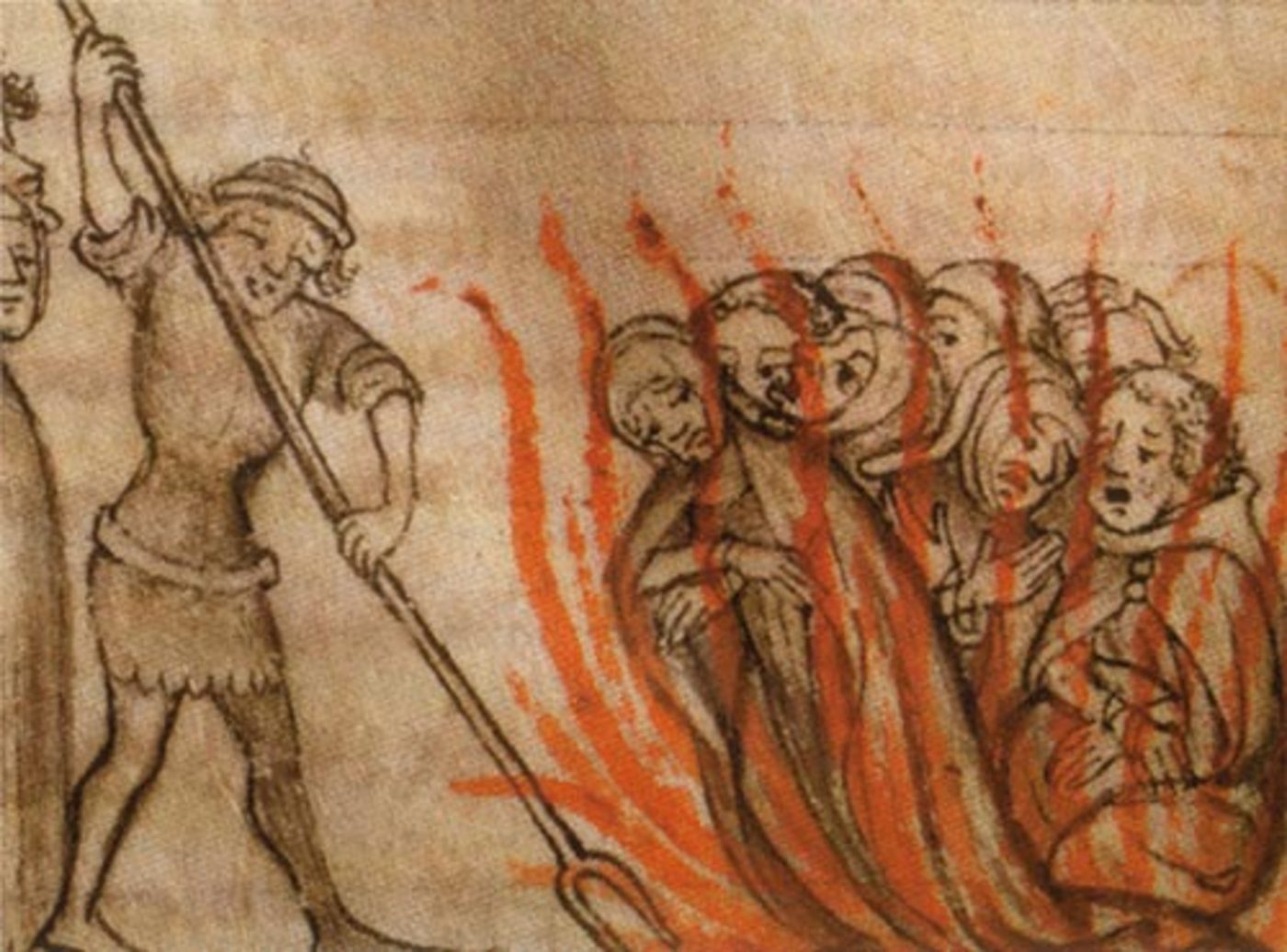George Wagner was one of the first Anabaptist martyrs to die at the hands of the Germans. Unfortunately there is not a lot of material that can be found on George Wagner other than what was recorded in the Martyrs Mirror. Like others before and after him, he was bound and then thrust into the fire.
Testimony of George Wagner from The Martyrs Mirror
George Wagner, of Emmerich, was apprehended at Munich, in Bavaria, on account of four articles of the faith.
First, That the priest cannot forgive sins.
Secondly, That he does not believe that a man can bring down God from heaven.
Thirdly, That he does not believe that God or Christ is bodily in the bread which the priest has upon the altar; but that it is the bread of the Lord.
Fourthly, That he did not hold to the belief that water baptism possessed any saving power.
As he would not renounce these articles, he was most severely tormented, so that the prince felt great compassion for him, and personally came to him in the prison, and earnestly admonished him thereto, promising that he would call him his friend all his life time. Thus also the tutor of the prince, earnestly admonished him to recant, and likewise made him many promises. Ultimately his wife and child were brought before him in prison in order, on this wise to move him to recant. But neither was he to be moved in this way; for he said that though his wife and child were so dear to him that the prince could not buy them with all his dominion, yet he would not forsake his God and Lord on their account. Many priests and others also came to him, to persuade him; but he was steadfast and immovable in that which God had given him to know. Hence he was finally sentenced to the fire and death.
Having been delivered into the hands of the executioner, and led into the middle of the city, he said, “Today I will confess my God before all the world.” He had such joy in Christ Jesus, that his face did not pale, nor his eyes show fear; but he went smilingly to the fire, where the executioner bound him on the ladder, and tied a little bag of powder to his neck, at which he said, “Be it done in the name of the Father, the Son, and the Holy Ghost;” and having smilingly bid farewell to a Christian, who was there, he was thrust into the fire by the executioner, and happily offered up his spirit, on the eighth day of February, A. D. 1527. The sheriff, however, surnamed Eisenreich von Landsberg, while returning home from the place!!of execution, traveling on horseback; purposing to apprehend others of the brethren, died suddenly in the night, and was found dead in his bed in the morning, having thus been removed through the wrath of God.
NOTE.-It is known that Balthasar Pacimontanus opposed infant baptism, and was therefore burned at Vienna, A. D. 1527. See second part of Jacob Mehrning’s History of Baptism, page 777, ex Bellarm., Tom. 3, lib. 1, de Bdpt., cap. 8.
